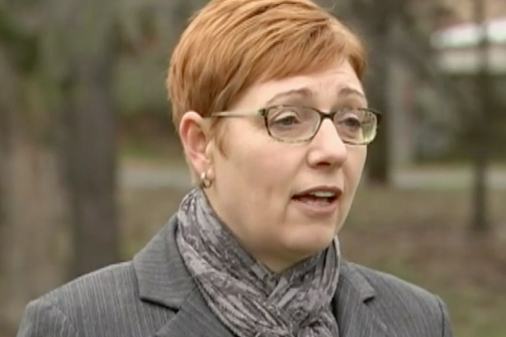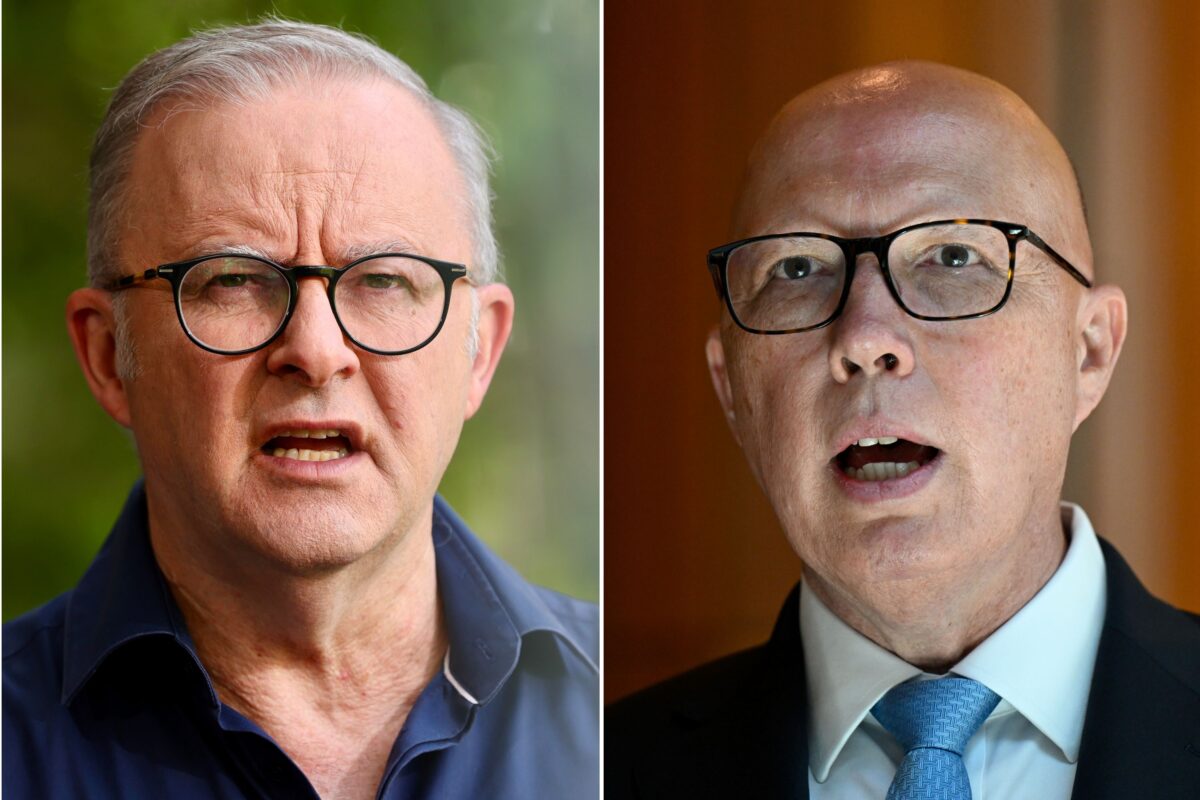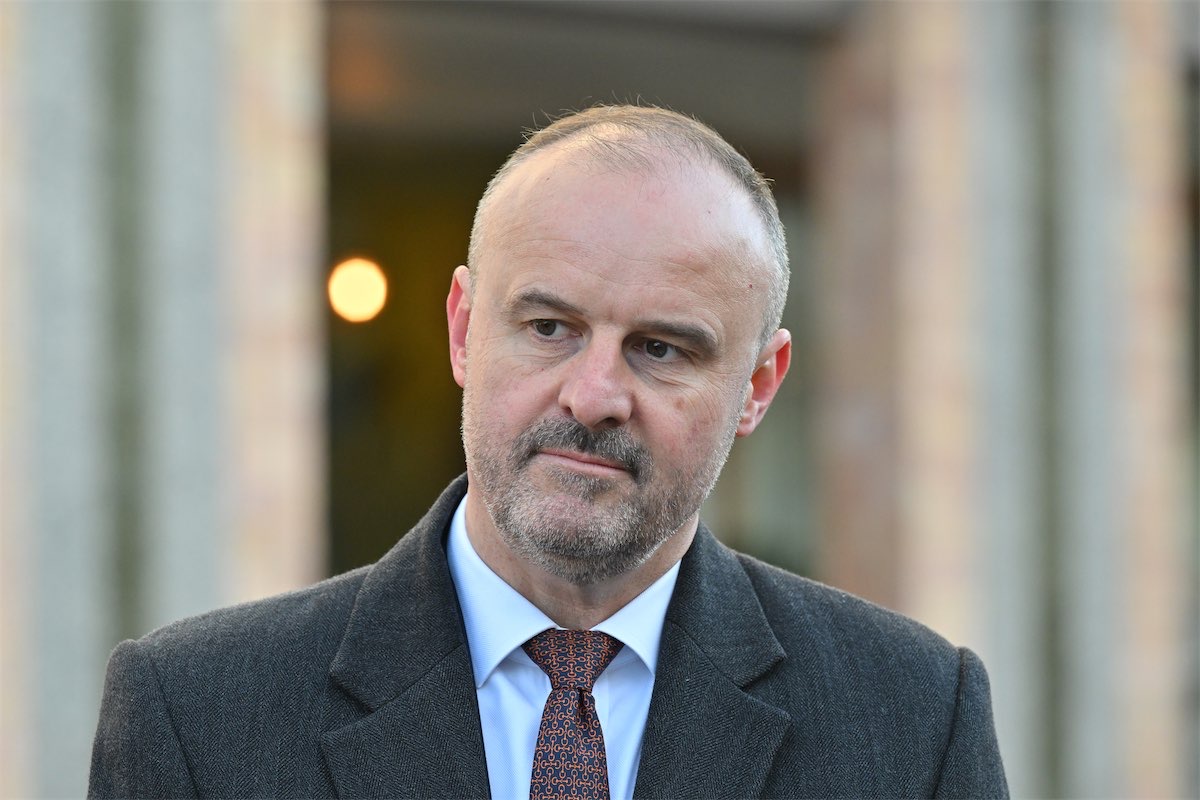
As the minister extols the referendum ‘yes’ case, the auditor-general reveals a damning look at how her government is failing the indigenous community. JON STANHOPE & KAHLID AHMED say it amounts to deliberate acts of misrepresentation.
IN August, the ACT Minister for Aboriginal and Torres Strait Islander Affairs, Rachel Stephen-Smith, talked up her working relationship with Australia’s first First Nations advisory “Voice”, the 15-year-old ACT Aboriginal and Torres Strait Islander Elected Body.
She reported how frustrating it was to hear the “no” campaign promoting ignorance about the Voice rather than encouraging people to seek to understand it.
“So I would say yes, if you don’t know, ask someone, Google it, go to a forum,” she said.
Ironically Ms Stephen-Smith’s comments were made in the same week that the ACT Auditor-General’s Report No.6 of 2023, titled “Implementation of the Aboriginal and Torres Strait Islander (ATSI) Agreement”, was released.
Among a myriad of findings, the report identified risks to the effectiveness of the Elected Body, which elicited the following response from Ms Stephen-Smith: “Are we there yet? Absolutely not. Do we need a partner to hold us to account? Absolutely, we do need that”.
However, the audit highlighted much more than that and was scathing of the ACT government’s implementation of the ATSI agreement. Criticisms the minister apparently chose not to address.
The timing of the performance audit by the auditor-general and the release of the report in the lead up to the referendum on the Voice is, surely, coincidental, as typically such audits are planned years ahead.
Generally speaking auditors-general assiduously avoid critiquing or even commenting on policy, which is the prerogative of government, and concentrate instead on a detailed analysis of the implementation by government agencies of government policy and related activities.
Audit reports by their very nature are invariably critical of the area/service the subject of a performance audit. Even with this expectation, “Implementation of the ACT Aboriginal and Torres Strait Islander Agreement” performance audit is extraordinarily critical and, in our opinion, unique in the ACT.
The audit concluded that while performance reporting has been conducted over the life of the 2019 ATSI Agreement, it has not provided a structured and faithful representation of progress (our emphasis) in its implementation.
One of the key findings in relation to the annual report on the ATSI Agreement tabled in April 2020 was: “There was a lack of structure to the report, and it was not possible to accurately determine which parts of the 2019 Agreement had (or had not) been progressed.
“The report predominantly consisted of unstructured reporting of highlights, which does not provide a faithful representation of progress that has (or has not) been made.
“There was also insufficient information provided in the report on the progress in developing and implementing the Outcomes Framework, which was intended to be used to promote accountability for implementation.
“Performance measures included in focus area action plans for Phase One of the 2019 Agreement, which were reported in the annual report, lacked specific targets or methods to assess performance.”
The audit made a similar finding in relation to the reporting by directorates in their 2020-21 annual reports: “Directorates’ reporting of their activities to implement the 2019 Agreement, as shown in their 2020-21 annual reports, did not provide a faithful representation of their activities.”
Overall, the audit concluded that performance reporting did not enable Aboriginal and Torres Strait Islander communities to hold the government to account for the implementation of the 2019 ATSI Agreement as it was not materially complete or faithfully presented, and that the differences between directorate implementation plans and the focus area action plans have not been disclosed publicly.
Notably, there are 18 references in the auditor-general’s report to the term “faithful reporting”. In Paragraph 4.5, the auditor-general helpfully defines the attributes of faithful reporting as:
- complete – it includes all information required to create an accurate understanding;
- neutral – it is free from bias in the selection and presentation of information; and
- it is free from error.
These are well established and important principles for financial and performance reporting.
There is also a statutory basis for annual reporting. The audit report lists the relevant legislation and the various instruments and directions (paragraphs 4.38-4.40) that require directors-general to affirm that the annual report is “an honest and accurate account, containing all material information for the reporting year”, and that this requirement is equivalent to the description of a faithful representation.
And yet, according to the auditor-general, apart from the Education Directorate, no other ACT government directorate has fully met these requirements.
While material errors may be attributable to a lack of rigour and attention, any departure from the other two principles – complete and free from bias – surely must justify one in thinking that ipso facto any such departure was conscious and deliberate.
As such, it is not unreasonable for members of the public to interpret “not a faithful representation” as involving a deliberate act of misrepresentation.
The audit found that governance arrangements to oversee the implementation of the ATSI Agreement have not been effective. Of the 99 priority actions in the Phase One focus area action plans, 24 have not been adequately addressed by directorates in their implementation plans.
Two governance committees were established to oversee the implementation of the Agreement; the Aboriginal and Torres Strait Islander Affairs sub-committee of the ACT Public Sector Strategic Board; and the Aboriginal and Torres Strait Islander Affairs Inter-Directorate Committee.
Through a detailed examination of the committees’ workings, minutes and action lists, the auditor-general reported that: “[N]either committee has had sufficiently stable and consistent attendance by members since the commencement of the 2019 Agreement and neither committee has met according to the timeframes set down by their terms of reference.
“Action items have been consistently noted in the meeting minutes of both committees, but the completion of actions has not been consistently reported or tracked to their ultimate completion. The Strategic Board sub-committee has not effectively fulfilled its responsibility under its terms of reference to oversight risk management of the 2019 Agreement.”
This is a damning assessment.
In relation to support for self-determination, the audit concluded that directorates are not yet able to demonstrate their ability to support self-determination for Aboriginal and Torres Strait Islander communities.
The flawed implementation of the ATSI Agreement, the ineffectiveness of the Elected Body through underfunding and lack of commitment by the government, and Aboriginal people’s inability to hold the ACT government to account, are hardly the examples to follow for a national “Voice”, which we nevertheless hope will be implemented following the referendum.
Jon Stanhope is a former chief minister of the ACT and Dr Khalid Ahmed a former senior ACT Treasury official.
Who can be trusted?
In a world of spin and confusion, there’s never been a more important time to support independent journalism in Canberra.
If you trust our work online and want to enforce the power of independent voices, I invite you to make a small contribution.
Every dollar of support is invested back into our journalism to help keep citynews.com.au strong and free.
Thank you,
Ian Meikle, editor







![Michael Bennett reckons he’s discovered the focal point and connecting image of the bush capital – Telstra Tower atop Black Mountain.
“I slowly figured out that I was seeing [the Telstra Tower] over and over again, especially from Banks,” says Michael.
“That amazed me so much that I thought, ‘if I can see it from Banks, I can see it from just about anywhere’, and so I started taking photos of the tower.”
Michael’s curiosity stemmed from a map of Canberra.
Despite living here since the age of two, he realised there were many suburbs that he just hadn’t seen.
To read the rest of Michael's story, visit our website at citynews.com.au or tap the link in our bio! 📸
#canberranews #citynews #localstories #canberrastories #Citynews #localnews #canberra #journalism #canberracitynews #storiesthatmatter #canberralocals #telstratowercanberra #telstratower](https://scontent.cdninstagram.com/v/t39.30808-6/479498898_1172278498241035_1301680519954749830_n.jpg?stp=dst-jpg_e35_tt6&_nc_cat=109&ccb=1-7&_nc_sid=18de74&_nc_ohc=R9hy7ytd-EgQ7kNvgERGB9B&_nc_oc=AdiT2lNkdxAq1qi7FgXs3LlFpBFMdUz4-AosFWX45-DT_gNN-elgNTQHU5kBx3jTeFs&_nc_zt=23&_nc_ht=scontent.cdninstagram.com&edm=ANo9K5cEAAAA&_nc_gid=A0kJXfG0L1hBWeHn7DKlnzz&oh=00_AYBo7vTBug_mN8PS2CCUiKVg63TdIYkND09MisHyoenlHg&oe=67BD2153)
Leave a Reply